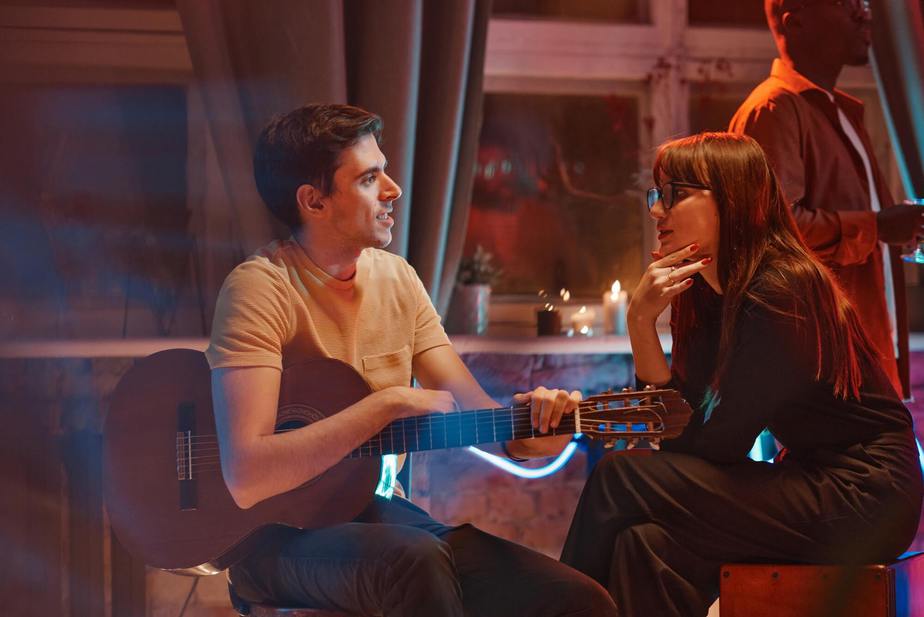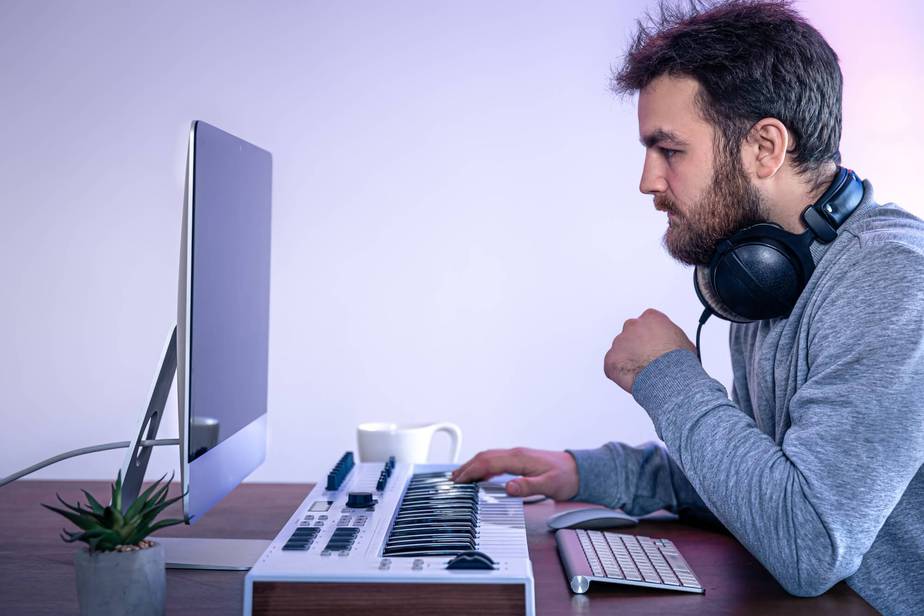This experience is a tale as old as time—or at least as old as copyright laws. You write a song, a good song, but something just isn’t right. There’s a nagging voice inside your head that you’ve heard before.
Is that just because you wrote the song and listened to it one too many times? Or is it because your song is accidental music plagiarism?
While some artists believe it’s impossible not to plagiarize music, others do their best to avoid plagiarism at all costs.
One side of the argument believes that music grows from copying other artists. You can’t invent a new genre, new chords, or new music theory. Plus, some of the best artists of all time may have copied other artists. This argument makes sense, philosophically speaking. But that argument won’t hold up in court.
The other side believes that music plagiarism should be avoided like the plague. It can land you in a lawsuit—or at the very least, make you look bad.
So, today we’re covering 10 tips to help you avoid music plagiarism and write original tracks.
Can you plagiarize music?
Yes. Music plagiarism is a real thing, and it can get you into serious trouble. There are two ways that musicians can plagiarize music.
First, a musician may copy a musical idea such as a melody or bass riff. Sometimes artists will outright steal ideas from others. That’s an easy enough problem to avoid.
But sometimes, we accidentally copy music without meaning to. It can happen to the best of us. You think something is original when really it’s a memory of someone else’s song.
Second, a musician might sample another artist’s song without their permission. There can be gray areas here as well—which we’ll cover.
If you want to avoid plagiarism in your music, you need to avoid both kinds of music plagiarism.

Let other people listen to your song before you release it.
If you have a bad feeling that your song is plagiarized, there are a few methods to figure out if it’s in your head or a real concern.
First, let other people listen to your song before you release it. Even if it’s only half-finished, you can share your song with a trusted friend to see if they recognize anything.
When using this method, it’s best to share your song with people who are knowledgeable about music. If you can get a hold of an industry professional in your genre, that’s even better.

Hum your song to your friends or yourself.
When music plagiarism cases make their way to court, “substantial similarity” is a commonly heard term.
To see if your melody is substantially similar to another song, consider humming. Listen to yourself, record yourself, or show a friend. If there’s a reason to worry that you might have plagiarized a popular song, humming the tune might prove you right.
Play the song at different tempos.
Speeding up or slowing down your song could also reveal potential similarities you may not have noticed before.
Don’t be afraid to adjust your music’s tempo. It could help you discover a concerning case of music plagiarism.
Move the song’s keys higher or lower.
Like a tempo change, a key change could bring some glaring mistakes into the light. It could also do the opposite. What once may have sounded similar to a popular song may now sound completely original.
Change the song’s time signature.
Time signatures play a huge role in how your song sounds. While most musicians will use a standard 4/4 time signature, switching up to a different time signature can produce a unique sound.
You may also want to employ a time signature change within one song. This works especially well for transitions!
Don’t listen to your song for 5-7 days.
When you hear that familiar nagging that your new song sounds familiar, it might be best to put it on the back burner for a few days or even a week.
Giving your ears a rest will give you a new perspective on your music. Not only can this technique help you identify potential music plagiarism, but it may also even fuel inspiration.
Whether you’re a singer, songwriter, or producer, any musician can benefit from this simple practice.

Add diversity to your track with original bass lines.
Basslines are often overlooked in tracks. Instead of opting for over-simplified unoriginal basslines, consider hiring a talented bassist to help you write your music.
For some people, that might mean adding a new bassist to your band or learning how to play the bass. For others, hiring a freelancer to write a short riff may be the answer.
A great bassline will help your song stand out—and an original bassline will ensure that you avoid music plagiarism.
Sample music with creativity.
Now, it might seem backward to avoid plagiarism through sampling—but hear us out.
When done wrong, sampling looks a lot like copying and pasting. But when done right, sampling can lead to something that is uniquely yours.
When sampling, try to:
- choose unconventional samples
- spread samples out
- layer samples
- reverse samples
- cut samples
- splice samples together
Combine these methods when working with samples to make them sound distinct from their original version, and you’ll end up with a plagiarism-free track.
Know your genre.
If you want to be able to avoid plagiarism naturally, get to know the big names in your genre. Don’t just listen to music—study it.
A great musician will be able to recognize stolen work when they hear it. By listening to music in your genre, you’ll familiarize yourself with the popular songs that you don’t want to imitate exactly.
Knowing your genre is also just a good idea in general. It can help inspire and motivate you to keep writing.
Move on when you realize that you’ve copied another song.
Let’s say that you go through this process and realize that you have plagiarized another artist by accident.
Instead of ruminating on it, start moving towards your next steps.
First, admit that you accidentally plagiarized—it happens to the best of us. Then, work to correct your song. Just because you may have copied something by accident doesn’t mean the whole song needs to go.
Here are a few tips for moving on after realizing that you’ve copied someone:
- Change the melody
- Put the song aside if it’s too similar to something else
- Make changes to push the song in another direction
Accidental plagiarism doesn’t have to mean the death of your song—but it could have serious consequences for your career if you decide to publish it.
Summary: How to Avoid Plagiarism in Your Tracks
If you want to avoid plagiarism in your tracks, be sure to follow our advice.
First, listen to your song and follow your instincts. If it sounds familiar:
- hum it to yourself
- show it to a friend or music professional
- alter the song to see if you can identify the similarity
And when working with samples, be sure to:
- edit the samples beyond easy recognition
- add in completely original elements
Now that you know how to avoid plagiarism as a musician, you’re ready to get out there!
Once your music is on Spotify, consider boosting your listeners with Musicvertising’s targeted Spotify promotion packages, including Playlist Placements!
